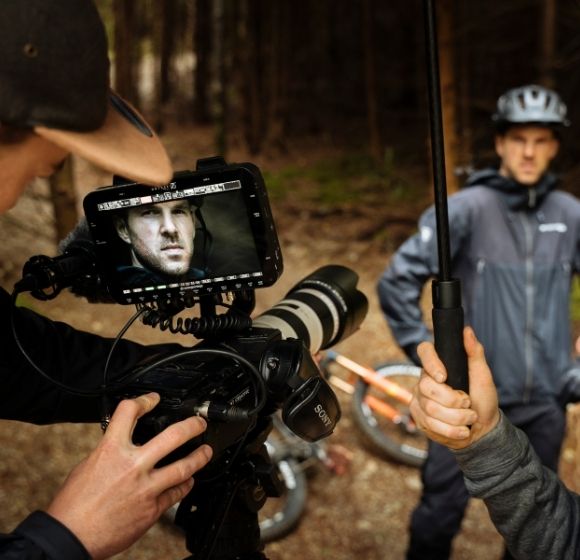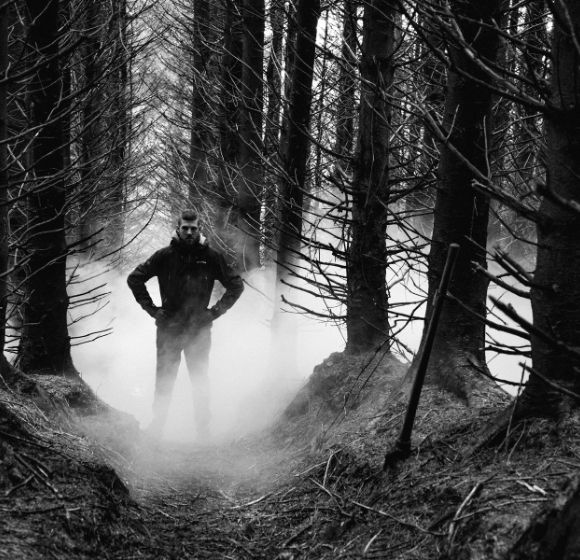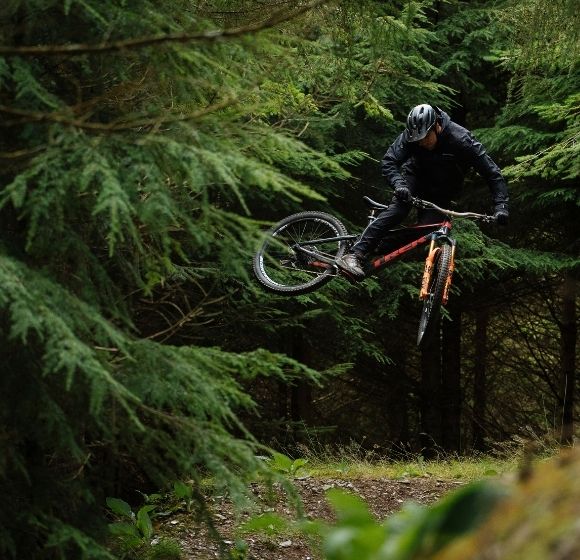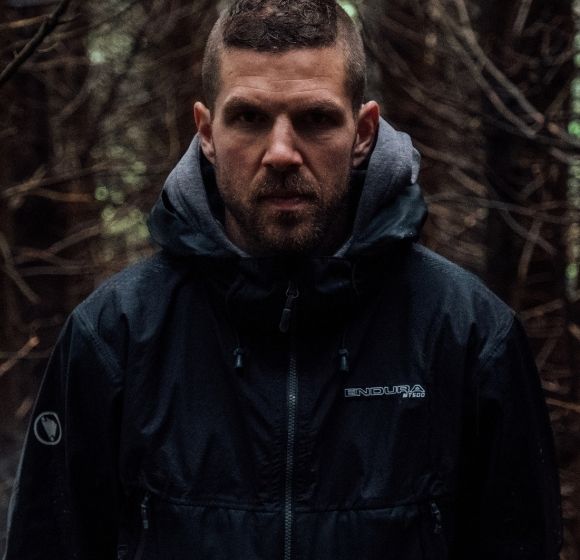
DAN ATHERTON
Get knocked down. Get up, keep going.
Dan Atherton is one of three racing siblings on the Trek Factory team, a man who is familiar with the risks of his beloved mountain-biking and known for his love of all bikes. Dan Atherton has been knocked down and out, but always got back in the ring again.
Dan Atherton, 'the older sibling,' pauses. “Hmmm. Yeah.” For all that Dan Atherton has spent almost half his life racing downhill bikes flat-out on the world's most challenging tracks, he invariably considers his responses before replying. The 36 year old Trek Factory racer, elder brother of 2018 World Cup downhill series winner Rachel Atherton and double World Champion and 9 times World Cup winner Gee, the eldest Atherton is a reflective soul. You get the strong feeling that he is a steadying presence in the Atherton Clan.
Light feet, fast reactions, good balance, strength, endurance and the ability to take a hit, are essential attributes in the noble art of ...downhilling.
Atherton's exterior calm shouldn't be interpreted as a blissed out state, because when a rider is staring down a downhill track about to launch themselves into a potentially bruising encounter with Mother Nature, what is required is focus, fitness and determination. Light feet, fast reactions, good balance, strength, endurance and the ability to take a hit, are essential attributes in the noble art of ...downhilling.
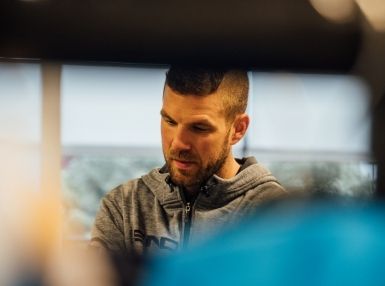
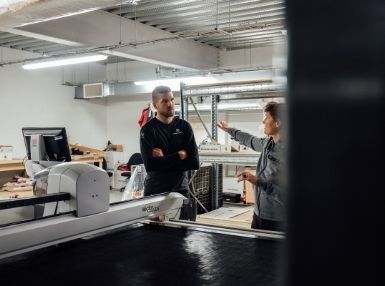
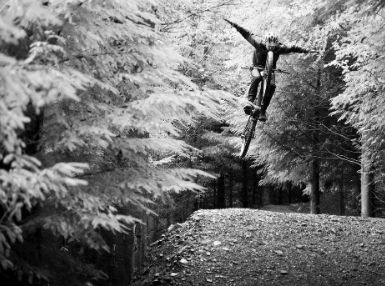
Atherton's reflective demeanour shouldn't come as too much of a shock, given that in July 2010 a broken neck in a training accident saw him flirt with paralysis. Anyone would have their outlook altered by that sort of catastrophic event and, sure enough, Dan recognises that his long recovery and post-injury approach have changed him. But it couldn't stop him. “I remember some of the worst injuries, when I'd do a video on my phone, telling myself not to ever put myself in that position again, it was just too painful. But when you are back on it and feeling better you think, “Oh, I'll just go for a little ride' and it goes from there and you build your confidence back to the point where, yeah, you're back to where you left off.” And so, seven months after his life-changing accident, with bone fragments still 'floating' in his body, off he went again.
“You build your confidence back to the point where, yeah, you're back to where you left off.”
“As a rider you are always aware of the possibility of getting injured and I guess the older you are, the more aware of it you are, especially with my history,” adds Atherton with a quiet laugh. However, even if the battered body is still willing, then the mind has to be ready for the fight too. Although Atherton has plenty scars on the outside, the mental battle, the one that can't be seen, is the one he finds more burdensome. “Obviously you get a little bit stiffer as you get older, but its more the mental side of it is more of a struggle for me, the memories of how fucking painful it is when you crash. And really, it's strange, because there are injuries on the outside that look really bad – like you broke your leg or your hip – but they're not harrowing or traumatic, there are others that stay with you and they're the ones that slow you down.”
Anyone who has witnessed a World Cup downhill race will realise that it falls squarely into the category of dangerous sports which come with a risk of serious injury. There's zero run-off in wooded sections and there's no air-fence to cushion your fall should you take a tumble in a rock garden or misjudge a gap jump. Every competitor has to face the fact that there's a real risk of getting badly beaten up. You will crash. You will get hurt, there will be bruises, no matter how well protected you are. Why, Dan? Why go on after repeatedly hurting yourself (and, in particular after breaking your neck)?
It's passion that makes you get up at five or six in the morning to go training. It's just impossible to put the bike down.
It's a question that elicits a Dan Atherton trademark pause. “Hmmm. It's hard to say...it's just...passion really. It's passion that makes you get up at five or six in the morning to go training. It's just impossible to put the bike down. The thing is riding downhill is something that is so much a part of you, ingrained so deeply, that you can't stop. I mean, you almost keep going, keep riding and racing until you reach the point you simply can't go on any longer, physically - whether that's through injury or just getting old. I mean, look at it, there are very few riders who quit when they can actually keep going and keep competing. It's impossible to stop. I don't want to say it's like a drug, but...I dunno.”
Such is Atherton's love for downhilling that he has, since the very beginning, designed and built courses, to ride, to train on and to offer to the rest of the world. There aren't many riders of his ability whose love for the sport extends to to getting their hands as dirty and swinging a pick as much as Dan. “It's something I've always loved, for me it goes in tandem with riding, I love creating courses, building a track and then riding it. I love the process of creating something with a purpose in mind and I'm lucky now, to have got older, had some success which means there's been more opportunities to fulfil that passion for digging. Because I've got a network of contacts and sponsors now, its easier to build. Here, in Wales, there are a lot of opportunities and we're lucky to have quite a lot of land at our disposal.”
The hills and woods of North Wales are not one of the more densely populated parts of the UK and Atherton has a reputation for shunning the noise, preferring the seclusion of Dyfi Forest. It seems strange, that a character who has made a career in the raucous, rowdy world of downhill mountain biking finds himself comfortable in relative calm of the land of the one-bar phone signal. “I guess I like the quiet life in the forest now because I lived that life for so long, living out of a bag and trips between hotels and you get burnt out from it. The Atherton Project video series was quite intense and people expected you to be a certain way, you were expected to maintain enthusiasm and a level of 'awesomeness'” – he laughs – “and that's not me. Mind you, I think Rach and Gee make up for it...”.
Dan's anecdote offers an insight which exposes the difference between the perception and the reality of top level professional downhilling. There's the on-screen racing flamboyance bordering on showbiz, the YouTube diaries, the road trips and jargon heavy subculture and then, behind it all, there's just flat-out hard work and putting sweaty hours lifting weights and doing core work in a gym. “The sport is in a different place now from what it was, I think there's a new level of professionalism, the guys are definitely putting their heart and soul into it, training every hour that God sends. I don't think that there's anybody who jumps out of bed, gets on a downhill bike and wins a World Cup who isn't constantly thinking about it, always pushing, always trying to work out how to go faster.”
It's his skills, nerve and fitness against the mountain, and, although he's been knocked down a few times, he's not ready to stop, not anytime soon.
There's a brief pause, as he picks up on an earlier theme. “It's all very well having talent, but unless you've got that motivation, well...you could be the most talented person in the world on a bike, but if you haven't got that drive and passion for the sport, well, you're not going to be the best are you? It's almost like there's another level, on top of the passion. From my experience, working with Rach, she's never switched off, or very rarely, it's always there, always in the back of her mind – how to win. And that's pretty intense.”
It's a level of racing intensity that Dan Atherton has taken a step back from, enabling him to build jaw-dropping downhill tracks – including the Red Bull Hardline in Dyfi Forest – but still ride. Atherton is a bike racer who has distilled his experiences into designing and building, fuelled by the same passion that started him racing 20 years ago. These days he measures himself against his fearsome engineering in the Welsh hills rather than against the clock on the World Cup circuit, but the challenge is fundamentally the same, you are going head-to-head with a scary opponent, risking a battering. It's his skills, nerve and fitness against the mountain, and, although he's been knocked down a few times, he's not ready to stop, not anytime soon.
© 2021 ENDURA
